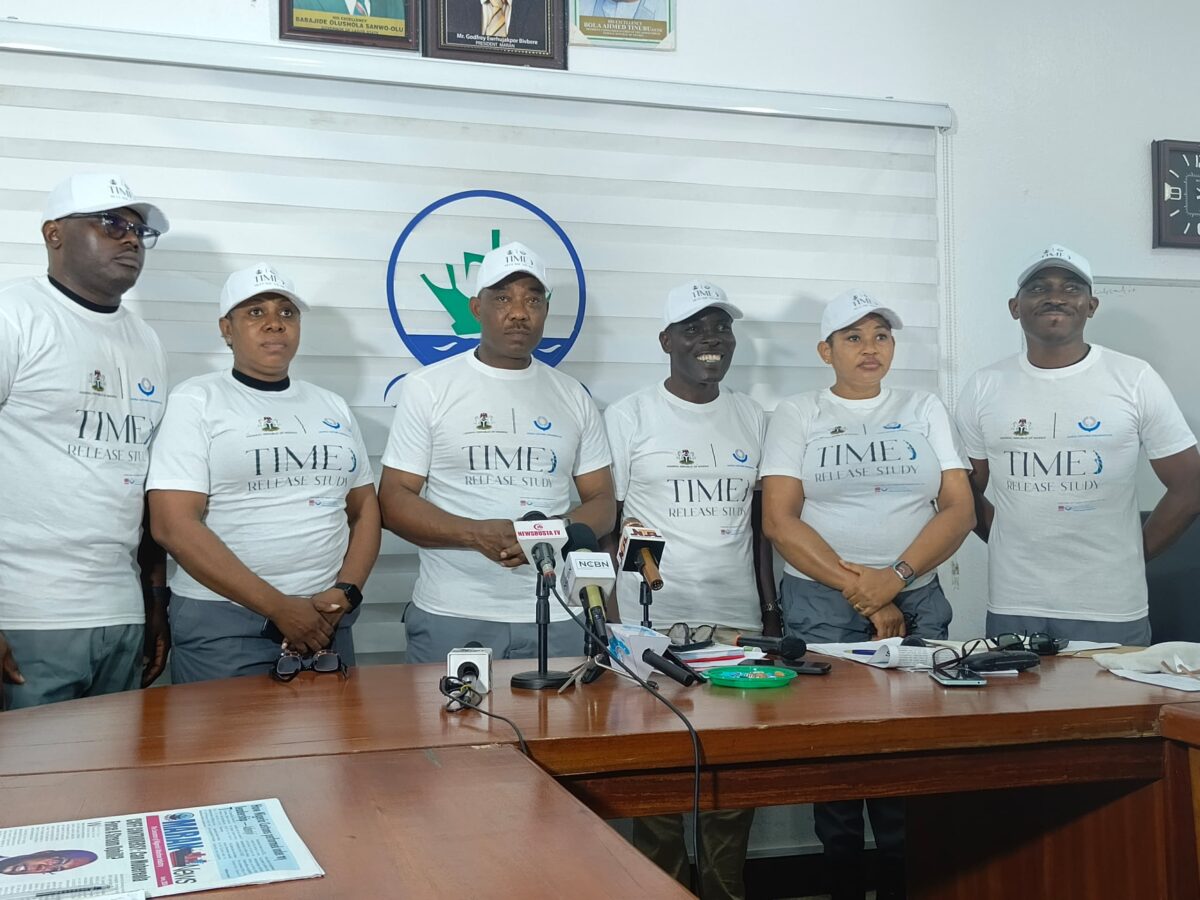
By Steve Agbota and Henry Uche
The Tincan Island Port Command of the Nigeria Customs Service (NCS) has announced a revenue generation of N575.5 billion. This is an improvement by N315 billion and a 221.13% increase from the FY 2023 First Half revenue collection of N260.2 billion.
The Area Controller, Comptroller Dera Nnadi, while briefing newsmen in Lagos said the feat was in line with the statutory functions of the Service in the areas of Revenue Generation, Trade Facilitation and Enforcement/Anti-smuggling activities.
According to him, the Command’s operations were performed in consciousness of the theme of the 2024 International Customs Day, ‘‘Customs Engaging Traditional and New Partners with Purpose,” with focus on Customs Administrations providing an enabling environment for stakeholders that facilitates and supports businesses and people to recover from the negative effects of the floating exchange rate through collaboration with relevant stakeholders in the supply chain and the use of technology.
The Comptroller maintained that the Command within the period under review further enhanced the existing operational process to conform to the malady of the floating exchange rate regime with the use of technology made available by the NICIS II Software. Such facilities as the ‘846’ Non-Standard VIN valuation application, Pre-Arrival Assessment Report (PAAR), Advance Manifest and Selectivity engine enabled a more efficient risk management process mitigating delays in cargo clearance, facilitating legitimate trade and ensuring the collection of appropriate duties and taxes.
Nnadi confirmed that the Command under his watch recorded some feats in areas of enforcement and anti-smuggling activities. “The command’s enforcement and anti-smuggling unit has not been relenting in its efforts to combat smuggling and all forms of criminality. Customs, being the lead agency at the Ports through its enforcement unit has coordinated a 100 per cent physical examination under my supervision in collaboration with critical stakeholders to ensure that the command is freed of any form of non-compliance to the international trade cycle.
He pledged to collaborate with stakeholders in the Maritime industry like the shipping companies/lines, on modalities to automate communication channels to reduce fraudulent manifest transmission, recycled bills of lading and other channels that could lead to revenue loss.
Terminal operators and barge operators were also engaged on best way to reforms and standardized transire management and seamless movement of cargo in the trade cycle.
“We had guests from Ministry of Environment who came to enlighten us that the ban of wood and charcoal has been lifted. More so, in the area of trade facilitation, the Command made available facilities for resolving disputes and addressing legitimate complaints of stakeholders as it relates to the customs clearance process via the dispute resolution committee and the helpdesk.”
Expressing optimism for better performance rating, he added that the engagements were strategic and significant in assisting the Command to maintain a balance between facilitating legitimate trade and collecting appropriate taxes on behalf of government.
“In the meantime, the port access and terminal access roads are undergoing construction works and further decongestion, the Command has continued to facilitate the use of Barge as an alternative means of transport for the movement of custom cargo in line with international best practices, helping to maintain business and flow in the customs clearance process.
“The implementation of the e-Customs project and the installation of smart technology at the ports will be a turning point in the digitalization of customs processes and procedures and will significantly boost the Command’s capacity to enforce compliance and generate revenue in line with international best practices,” he said.










